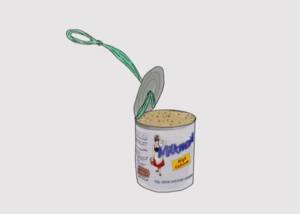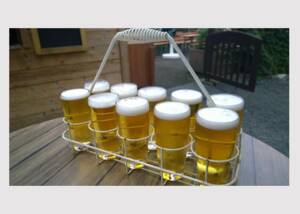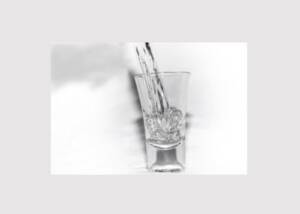Cold coffee vs. iced coffee: why one tastes bitter and the other delicious
News News blog
When coffee is brewed hot and then slowly cools down, something strange happens: it suddenly tastes bitter and undrinkable. Quite different from a freshly prepared iced coffee or cold brew, which are also served cold but are really delicious. The reason is a chemical reaction.

Chemical reaction makes cold coffee bitter
Coffee naturally contains chlorogenic acid. When the beans are roasted, this acid combines with so-called lactones and turns into bitter substances. Depending on the method of preparation, the coffee is then more or less bitter.
If freshly brewed coffee is left to stand for a while, the lactones break down into carboxylic acid and chlorogenic acid as it slowly cools. Together with the oxidation that also takes place during cooling, this results in an unpleasantly bitter and sour taste.
Rapid cooling prevents bitterness
Unlike stale cold coffee, iced coffee varieties such as cold brew or Caffe Leccese do not taste bitter. The secret lies in the speed at which the coffee is cooled down.
When making iced coffee, the hot coffee is cooled very quickly with ice cubes. This prevents the lactones from being broken down into bitter substances. The bitter chemical reaction does not take place with cold brew either, as the coffee is not brewed hot in the first place, but prepared cold.
Incidentally, iced coffee often provides even more caffeine than hot coffee. The reason: more and stronger coffee is usually used for iced coffee, as it is diluted by the ice cubes.
Conclusion: Coffee that is cooled slowly becomes bitter and undrinkable due to chemical processes. Iced coffee varieties, on the other hand, impress with their quick cooling or cold preparation and delicious taste. Perfect for hot summer days!










